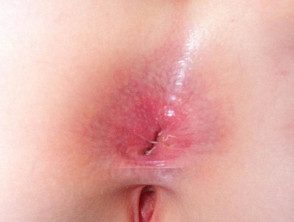What are pinworms?
Pinworms (Enterobius vermicularis) are small roundworms that live in the lower digestive tract of humans. They are also called thread worms, enterobiasis, and oxyuriasis. Infestation or infection with pinworms is most common among school-age children, in some communities it affects up to two-thirds of children aged 5 to 10 years.
What are the symptoms of pinworm infestation?
The most common symptom caused by pinworms biting around the anus, also called pruritus and me. The itching tends to be worse at night and can cause problems sleeping. The itch is caused by a inflammatory reaction to adult worm and eggs on the skin.
Adult worms sometimes migrate into the vagina instead of returning to the intestine. This can lead to itchy vaginitis with a mucous or stained with blood download.
Scratching can lead to bacterial infection (impetigo) with crust and oozing.
Severe infestations very rarely result in abdominal pain, nausea, or vomiting.
Why do pinworms itch so much at night?
At night, the adult female roundworm leaves the anus to lay eggs on the skin around the anus. After exposure to air, the microscopic the eggs mature and are typically infectious within a couple of hours. They can survive for up to 2 weeks outside the body.
How are pinworms spread?
The main way pinworms spread is by swallowing the eggs. When someone with pinworms scratches their anus, the eggs lodge under the fingernails and then settle on clothing and furniture. Uninfected people can come into contact with pinworm eggs and ingest them without knowing it. Infested people continue to ingest the eggs (self-infection).
Other members of the family are at particular risk for pinworm infestation.
How is pinworm infection confirmed?
Adult worms can sometimes be seen with the naked eye, as thin, white, twisted threads about 1-2 cm in length. Look at the anus at night or the surface of the stool.
A "duct tape" test involves taping a piece of clear tape to the crease of the anus, and is best done at night. The tape should catch any roundworm eggs, which can be confirmed by looking at the tape under the microscope.
Intestinal worms

Intestinal worms
How are pinworms treated?
It is important to prevent the spread of infection by maintaining good hygiene (washing hands with soap and water, keeping nails short, showering or bathing daily), washing bedding and clothing, and trying not to scratch to avoid contact with roundworm eggs.
Mild infections can go away on their own. However, pinworm infection is usually treated with albendazole or mebendazole. A single dose has a relatively high cure rate. A second dose two weeks later helps prevent reappearance of infection After each dose, bedding should be changed and the room vacuumed.
Because reinfection is common, it is sensible to treat the entire family at the same time to prevent recurrence and the spread of the infection to others.
